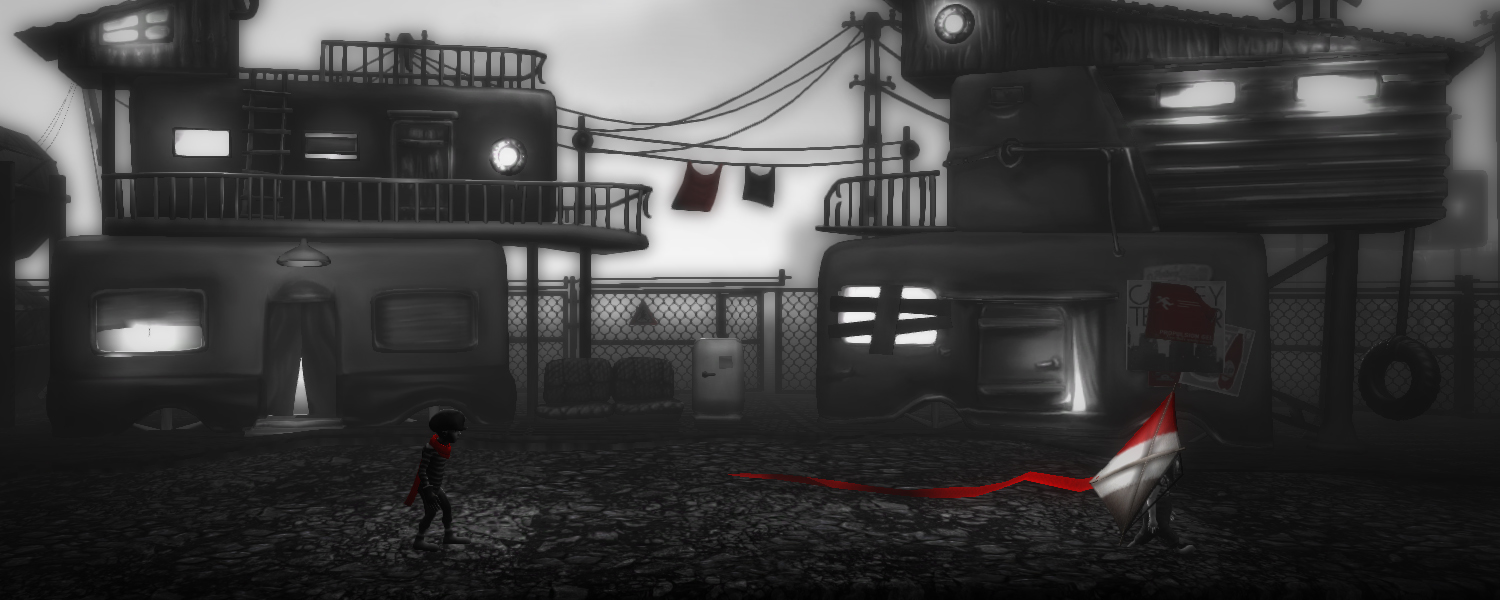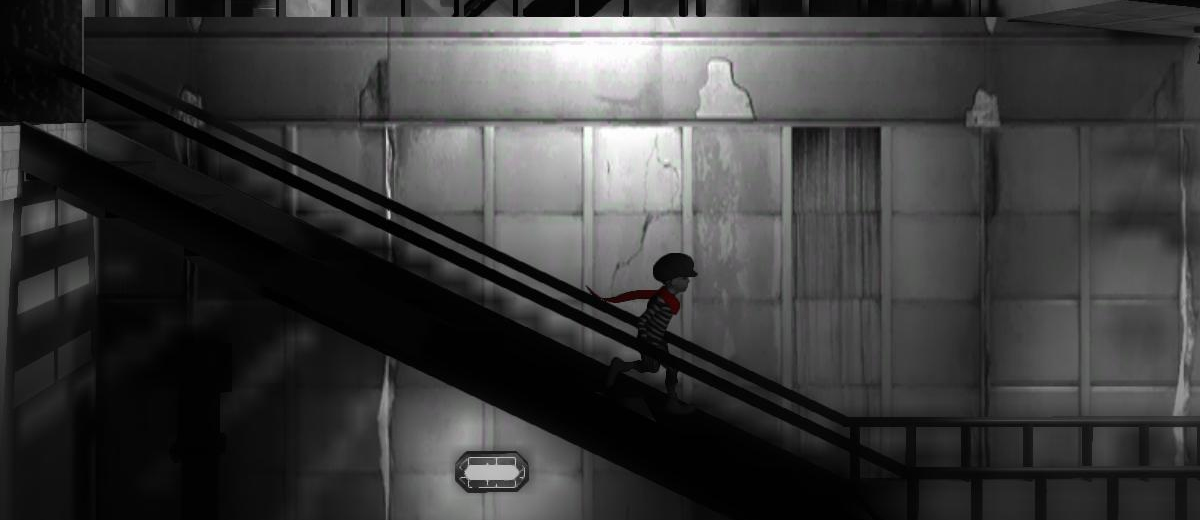

As the first of many comparisons to Limbo I will make in this review, Monochroma aims for a minimalist style of storytelling, with absolutely no dialogue to tell the story, aiming to deliver it via the backdrop of the game or through its loading screens. It’s a bold delivery, and its industrial-alchemic setting is one that inspires wonder at first. Playing the role of a big brother forced to escort the younger one through treacherous circumstances, the story is set around the aftermath of a supposed robot revolution. An interesting premise and, given the industrial setting, very fitting. However the plot soon turns to supernatural contrivances and soon loses any engaging plot details, and as the game wore on I found myself less and less interested in what the game had to say. The minimalist approach was very well executed however, as I enjoyed the setting and interesting tidbits that came up in the background. A much more enjoyable means of digesting a story rather than a forced dump of exposition.

Monochroma clearly isn’t just channeling Limbo with the presentation, but just about rips the entire book out in a copy and paste pastiche. Mixed with splashes of red, it’s a black, white and red mix of Limbo, Betrayer and Schindler’s List that looks great but isn’t entirely original. The setting is bleak and dreary which gives off a sense of dread, which is delightful given the subject matter, and the atmosphere is subtlety creepy. While it never hits the absolute sheer terror Limbo managed to do (especially in one very specific sequence) the art style looks good, and it’s very clear why so many suitors choose to rip off Limbo’s creation.

In terms of performance however, I encountered many problems. The graphics menu is painfully threadbare, and while this is hardly a intensive game, running this on an Intel i5-3570K and GTX 660TI setup it stuttered like crazy. It seemed to have been locked to 30fps, which I found to be a very strange choice. It’s a 2D platformer and it’s graphically equivalent to Limbo, a game that came out almost four years ago. Loading screens break the immersion by constantly popping in, sound cues are haphazard and sometimes music doesn’t play.

Once again checking off the list of indie games to take inspiration from (and I’m being generous here), the bulk of the game revolves around caring after the character’s younger brother. Whilst clearly reminiscent of Brothers: A Tale Of Two Sons, Monochroma fails in regards of trying to connect with the audience on why we should care for these two. In the opening sequence you can see your younger brother fly a kite in the background, with full use of his legs. In the very next sequence, he plonks down and refuses to move, forcing you to carry him onward. Maybe I missed an audio cue of him breaking his leg, maybe the game just flat out glitched over it (and I can see I am not the only reviewer with this problem), but I remained confused as to why this happened, and I assumed the game just wanted to throw in something to slow the game down for no real reason. The official synopsis says that he was injured, but I must have missed that particular cue. I am sure now that he had hurt or broken his leg, but the delivery was so botched that I felt that this introduction was a flaw.
And of course, being a ‘2D physics-based platformer’, the game revolves around puzzles; some simplistic, some fun, some incredibly tedious. Unfortunately, everything is tainted by some godawful controls. Unresponsive, sluggish character movements gave me no joy in the platforming parts of Monochroma. Worst of all, the jump movement had a fixed distance, so certain segments required a very finite set of movements that would nearly always go wrong due to the sloppiness of the controls. The physics engine isn’t much better; jumping from one bobbing box to the next in rising water led to copious amounts of frustration and restarts, as it was impossible to predict how the boxes would react to the character’s weight due to the unwieldy physics engine. Combine lengthy puzzles with a poor checkpoint system that restarted you to the start of the puzzle, some bad controls and uninspired puzzle design and it all adds up to a very disengaging and frustrating game.

As with all platformers, you are limited to a very small list of skills. Pushing switches, climbing chains and ladders and pushing objects, these abilities come together to solve the puzzles. Whilst flawed, the overall satisfaction in completing puzzles was a nice feeling. It’s a shame that the overabundance of flaws tend to dull the feeling somewhat.
Super Meat Boy and Limbo; these are games that reward a player through failure. Those games were not afraid to show the player what they did wrong, and what you needed to do to progress. Failure was due to the player’s faults and mistakes. The failures you encounter in Monochroma are due to a poor physics engine and terrible controls. When it works and when puzzles mesh well, it’s still not very original. If you’ve played any of the platformers I’ve mentioned before then you have played Monochroma.



